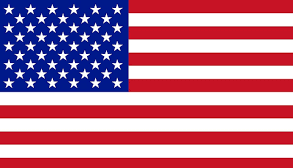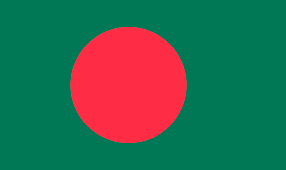Lorem ipsum dolor sit amet, consectetur notted adipisicing elit sed do eiusmod.
RUPSA stands for Rural & Urban Proactive Social Association. It is a local non-governmental organization (NGO) committed to various social and community development initiatives.
RUPSA is primarily based in Barguna, a district in southern Bangladesh. However, its reach extends to both rural and urban areas in the region.
Yes, RUPSA is duly registered with the Deputy Director of the District Social Service Office in Barguna, with registration number 382/05, dated February 16, 2005
Yes, RUPSA is a legitimate organization. It has been in operation for over 15 years and has a good reputation in the community. RUPSA is also a registered social organization with the government of Bangladesh.
RUPSA often welcomes visits from interested individuals or groups. You can arrange a visit by contacting them in advance to ensure a meaningful and informative experience.
RUPSA focuses on several core areas, including education, healthcare, environmental sustainability, entrepreneurship support, and initiatives that empower marginalized communities.
RUPSA has been involved in various projects, such as the “Self-Reliant of Disabled and Unprivileged,” “Tree Plantation,” and “Free Friday Clinic” initiatives. These projects address a range of social and environmental issues.
Yes, RUPSA often welcomes international donations to support its projects. You can contribute through secure channels provided on their website or through designated financial institutions.
You can get involved with RUPSA by volunteering your time, and expertise, or by providing financial support. To inquire about specific opportunities, contact RUPSA directly through their official channels
RUPSA’s programs and services are available to all people in Bangladesh, regardless of their income, social status, or religion. However, RUPSA specifically targets underprivileged communities, such as the poor, women, and children.
You can stay informed about RUPSA’s activities and impact by following their official website, and social media accounts, and subscribing to their newsletter, which provides regular updates on their projects and initiatives.
RUPSA is committed to transparency and accountability. They regularly provide financial reports and updates on their projects, demonstrating their commitment to responsible use of resources.
RUPSA is committed to using its resources wisely and efficiently. RUPSA has a transparent financial management system and undergoes regular audits. RUPSA also publishes an annual report that details its income and expenses.
You can donate to RUPSA through multiple channels, including:
Yes! RUPSA accepts donations of clothes, toys, computers, furniture, and other usable items. These are refurbished and distributed to underprivileged communities.
No, there is no minimum or maximum limit. You can donate any amount based on your ability and willingness to contribute.
Yes, all donors receive an official receipt as proof of their contribution. Please ensure you provide your email or contact information when donating.
RUPSA is a registered NGO in Bangladesh. Tax deduction eligibility depends on your country’s regulations. Please check with your local tax authority or financial advisor.
Donations are used to support RUPSA’s core projects, including:
You can specify a particular program or cause you want to support. Otherwise, your donation will be used where it is most needed.
Yes, RUPSA ensures all online transactions are secure and protected. We use trusted payment gateways to process donations safely.
No, RUPSA follows a No-Refund Policy for all donations. Once a donation is made, it is non-refundable, as funds are immediately allocated to ongoing projects.
Yes, you can choose to donate anonymously. Indicate this preference when making your contribution.
After donating, you will receive a confirmation email or SMS. If you do not receive a confirmation, please get in touch with us at info@rupsa.org
Yes, RUPSA accepts international donations. Please visit our website for details on how to donate from abroad.
RUPSA provides regular updates through newsletters, social media, and annual reports. You can track our progress on our official website and social media pages.
For any donation-related queries, you can reach out to us at:
1📧 Email: info@rupsa.org
Zakat is an obligatory form of almsgiving in Islam. It’s one of the Five Pillars of Islam and is a fundamental act of worship that involves giving a portion of your wealth to those in need.
Zakat should be paid annually, either on a specific date or on the same lunar date each year.
Zakat is calculated based on the total value of assets minus outstanding debts and liabilities. The Zakat rate is typically 2.5% (1/40) of the net assets.
The early Muslims paid Zakah every day instead of paying in large bulk once a year.
Some scholars have advised that we plan in advance for our Zakah because we might die and our inheritors may not pay the Zakah we owe. Another group of scholars says for businesses, you should pay in advance. The way you would do this is by estimating how much business you will make and paying 2.5 percent.
If you decide to pay Zakah daily, give a specific amount to one of the eight categories, but nobody but you and Allah should know that you are giving, since some will feel it demeaning and insulting.
First of all, the business should be Halal. There are three opinions among the scholars:
The amounts are the following:
2.5 percent on annual savings that are Zakatable
5 percent of agriculture being taken care of by a farmer who is planting and irrigating with his own money. During harvest time, he pays five percent of the total crop.
10 percent on a farmer’s product if it is being irrigated by rain
20 percent on resources like oil or precious metals (i.e., gold, silver) which you find on a piece of land that you own. This is “your property, no one has the right to nationalize it”. You would pay 20 percent of what you produced in one year.
Muslims who meet or exceed the Nisab threshold are obligated to pay Zakat. Nisab is the minimum amount of wealth a person must have to be eligible for Zakat.
The Quran describes eight categories of people who are to receive Zakah in Surah 9, verse 60. “As-Sadaqat (here it means Zakat) is only for the Fuqara and Al-Masakin and Those employed to collect the (funds); To attract the hearts of those who have been inclined (towards Islam); to free the captives; and for those in debt; and Allah’s Cause,
and for the wayfarer; a duty imposed by Allah. And Allah is All-Knower, All-Wise.”
Here are more explanations on these categories:
The group of people who are social services workers who go into the community to evaluate who is faqeer and miskeen.
Those who collect the Zakah money
The accountant of the Zakah money
Investors who increase their share of the Zakah
The clerical worker or secretary who puts the files in order
Those who will deliver Zakah to the ones who need it
The outside auditor.
These are those people who might enter or who have already entered Islam. Anyone we feel is good friends of ours (non-Muslim or new Muslims) we give them a gift from the Zakah money.
Riqab is the term used to describe the group of people who are slaves. The Zakah money is used to free the slaves. Sakr stresses that Islam did not invent slavery, but it gradually abolished it.
Zakah money is used to pay off debts but these people are not living in luxury, they are living a normal life. For example, someone who has gone bankrupt because of job loss and is overloaded with debt.
This can be anything for the love of Allah. Sakr gave the following examples:
For the employment of a Daiyah, Imam, or religious teachers to do Dawa.
Building Islamic schools Building
Muslim clinics and hospitals
Providing money to young men who want to marry but cannot afford Mahr.
To assist poor travelers
To establish water springs on streets for those walking or travelers
(Please note, that these last three things were done by Khalifa Umar ibn Abdul Aziz)
To defend Muslims who are under attack
For television, radio, or newspaper projects aimed at doing Dawa
To help someone publish a book for Dawa
To pay for the studies of a student.
This refers to a traveler, for instance, who has lost his wallet and has to get back to his home.
Note: This has to be verified to see if this person is telling the truth since there has been at least one case of a man claiming to be a lost traveler in North America who has stolen thousands from Muslims claiming to be a traveler of this type.
Zakat is primarily intended for specific categories of recipients, including the poor, the needy, those in debt, those working to collect and distribute Zakat, new converts, and those stranded during travel. Consult a qualified religious authority for guidance.
No, as long as you have one house, whether you have paid it off or not. If you have a second house for investment purposes, this is Zakatable. You would pay 2.5 percent of the total saved from the house. This excludes what is spent on maintenance or property taxes and insurance. It’s the same thing for a car. If you are renting a car to someone, this is considered a business entity, therefore, it is also Zakatable at 2.5 percent.
Most Muslims prefer to give their Zakah in Ramadan because there are more rewards for doing so, but it is not necessary to pay Zakah in this blessed month. Muslims are in need throughout the year, not just during Ramadan, so we can benefit Muslims by paying for other times of the year as well.
Failing to pay Zakat when eligible is considered a sin in Islam. It’s important to fulfill this religious obligation, as well as seek forgiveness for any missed payments.
Assets typically include cash, gold, silver, business assets, investments, savings, and valuable possessions.
Yes, using a Zakat calculator can be a helpful way to estimate your Zakat obligation based on your financial situation. However, it’s important to consult with a knowledgeable religious authority or scholar for precise calculations and guidance.
Zakat is typically intended for Muslims in need. However, there are other forms of charitable giving in Islam, such as Sadaqah, which can be given for non-religious or humanitarian purposes.
Zakat can be given directly to eligible recipients or through reputable charitable organizations like RUPSA, which can help ensure your Zakat is distributed effectively to those in need.
Remember that Zakat is an important religious obligation in Islam, and it is crucial to seek guidance from qualified religious authorities or scholars to ensure that you calculate and distribute it correctly according to Islamic principles and the specific rules in your country or community.
 US Dollar
US Dollar Bangladeshi Taka
Bangladeshi Taka British Pund
British Pund